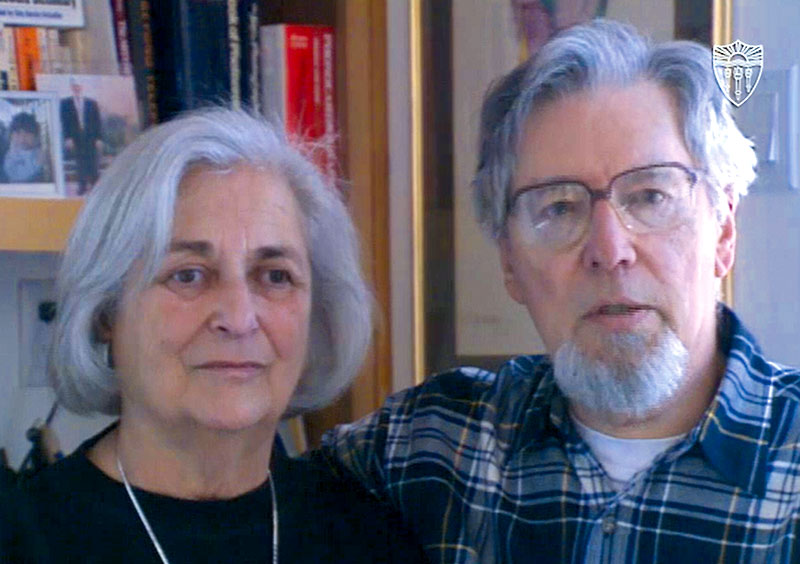
Ilse-Lore and Abner Delman
In 1933, when Ilse-Lore Delman was six years old, she was kicked out of her school in Frankfurt, Germany, for being Jewish. Intuiting the threat of the growing Nazi movement within the country, her family fled for Holland in a furtive dash, leaving behind all their possessions. After a few years of peace in Tilburg, Ilse and her parents were forced into hiding after the Nazi invasion of Holland. The three of them lived in a converted hay loft, subsisting on a minimal diet, their only contact with the outside world a sympathetic German business friend of Ilse’s father who risked his life to provide the family food and water. Ilse passed the time reading, playing cards, or gazing out the loft’s windows, lying awake at night in worry that the night watchman would hear her father’s snoring and discover them.
Ilse and her family survived almost three years in hiding, and she eventually came to America, where she lived the rest of her life. She held this harrowing story in silence, and, like many Holocaust survivors, was reluctant to relive the experience through its retelling. However, after repeated encouragement by a close friend who had given testimony to USC Shoah Foundation, Ilse eventually agreed to share her story. Ilse’s testimony in the Visual History Archive, taken in 1998, reveals a woman who is undaunted by the experience, one who is vibrant, happy, and full of life. “When you met her and interacted with her, you would never imagine that she had lived through this terrible thing,” said her husband, Abner Delman. “She was just a very caring, loving person.”
After Ilse’s passing in 2018, Abner moved forward with a bequest he and Ilse had planned in her parents’ memory to USC Shoah Foundation. “We were very impressed with the work that was being done at the Institute, and felt our gift would help retain the memory of her parents in perpetuity,” Abner said. The “Dr. Abner J. and Ilse Delman Fund in memory of Ilse Delman and her parents, Ernest and Erna Nathan” will create an endowment to support the Institute’s education, research, and collections programs, ensuring that more stories like Ilse’s can be gathered, contextualized, and shared with the world.
Abner, a retired cardiologist who lives in Sarasota, Florida, is grateful to USC Shoah Foundation for its mission to educate and enlighten the public on the realities of the Holocaust. “The Institute has the capability to show that these were real humans surviving unbelievable experiences—that their lives were not just symbolic, but real.”
The lesson that even in the face of unimaginable hardship, people can emerge to lead dynamic, meaningful lives is one that Abner hopes Ilse’s memory can teach: “She never retained hatred, despite all that had happened to her. She didn’t allow that experience to determine how she lived her life.”